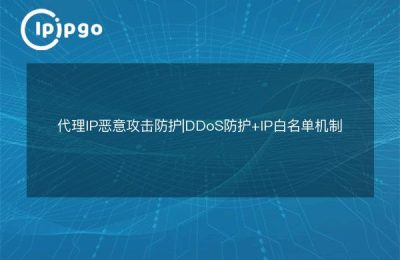
Why you need to know the difference between 'dynamic' and 'static' residential IPs?
Many people are confused by the concepts of "Dynamic Residential IP" and "Static Residential IP" when they first encounter proxy IP. In fact, it's like the difference between renting and buying a house - dynamic IP is like a short-term rental apartment, where the address changes every time you connect, while static IP is a fixed house number for a long-term lease.
utilizationipipgo's pool of 90 million + residential IPsDynamic IP is suitable for scenarios that require frequent identity switching. For example, when registering accounts in bulk, the IP address is automatically changed for each operation to avoid being recognized as the same user by the system. Static IP is more suitable for scenarios that require stable long-term connections, such as keeping the same IP address for continuous data monitoring.
Handy three steps to picking the right IP type
For those who have trouble choosing, look here and remember this foolproof formula:
| Scene Characteristics | Recommended IP type |
|---|---|
| High frequency, short duration operations | Dynamic Residential IP |
| Long-term, fixed requirements | Static Residential IP |
| Multi-country area requirements | Mixed Use Mode |
For example, those who do cross-border e-commerce can useStatic IP for ipipgoMaintain a stable login for the store's backend, and at the same time use dynamic IPs to collect competitor data, so as not to trigger the platform's wind control, but also to obtain the latest market intelligence.
Practical Case: The Three Golden Rules of IP Switching
Many users feedback obviously used proxy IP or blocked, the problem is often in the switching method. Remember these three key points:
1. Frequency of switching should be in line with the habits of real people
Don't set it to switch dozens of times per second, normal users don't change their IPs so frequently. ipipgo's smart switching system automatically adjusts the cadence according to the target site's anti-crawling mechanism.
2. Natural transition in geographic location
Switching from New York to London and then cutting to Tokyo would expose anomalies in the jump, and a reasonable geographic path would be a transition between neighboring regions like New York → Boston → Chicago.
3. Browser fingerprints should be synchronized and updated
Simply changing the IP address is not enough, you need to synchronize the change of time zone, language, screen resolution and other parameters. ipipgo provides full protocol support to automate these supporting settings.
White avoid pit guide: these details do not pay attention to = white use
- Be alert to the trap of "cutting IP in seconds": the 0-second switching claimed by some platforms is actually a shared IP pool, and ipipgo adopts the independent channel of real residential IPs.
- Verify IP purity: Type "whatismyipaddress" in your browser to see if the IP type is a residential network.
- Note protocol matching: HTTP/HTTPS/SOCKS5 protocols need to correspond to the correct usage scenario
Frequently Asked Questions QA
Q: Which is more secure, dynamic IP or static IP?
A: Security depends on the usage scenario. Dynamic IPs are more difficult to trace and static IPs are more stable and reliable. ipipgo's IP pools are verified by real people's residential networks, and both types offer enterprise-grade encrypted channels.
Q: Does switching IPs affect internet speed?
A: The latency of high quality residential IP is within 200ms. ipipgo can keep the web page loading speed within 3 seconds and the video streaming playback will not be lagged by the intelligent route optimization technology.
Q: How can I tell if a proxy is in effect?
A: Pay attention when you visit IP detection websites:
1. Does the displayed IP country match the target region?
2. Whether the network type is labeled as "residential network" or not
3. IP history is clean and free of abuse markers
Why choose ipipgo?
The biggest pain point in this industry is not the number of IPs, but the quality and stability. We have tested a number of platforms, some of which claim to have ten million IP pools, the actual availability rate is less than 30%. ipipgo's live residential IP pass rate has long been maintained at more than 98%, thanks to:
- Localized server deployment covering 240+ countries and territories
- Rigorous quality screening system with automatic elimination of anomalous nodes every 15 minutes
- Supports full-scene coverage from home broadband, enterprise leased lines to mobile networks
The next time you need a reliable and stable proxy service, start with a free trial of ipipgo and see for yourself the upgraded operating experience that professional-grade residential IPs bring.








